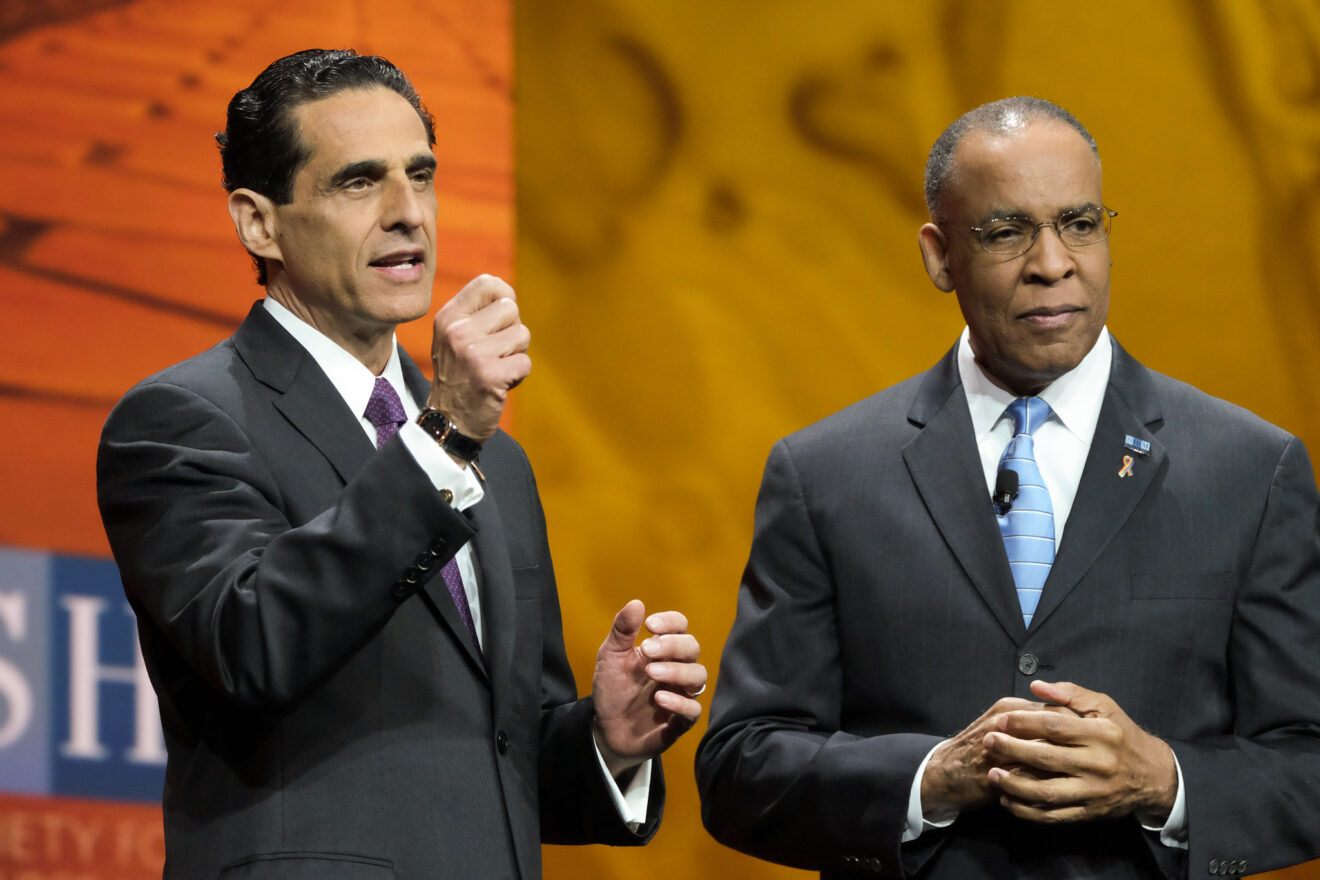HR is in a time of change and opportunity, with all sorts of “breakthrough” moments possible for the field to advance its agenda, be at the table when business decisions are made and make employees’ work and lives better — as long as we have the courage to act.
This much, everyone at SHRM’s annual conference agrees on, whether it be SHRM CEO Hank Jackson, various speakers at Monday’s sessions or Mike Rowe, the “Dirty Jobs” host whose foundation seeks to solve the “disconnect” in America about work.
The world of work is changing, and change is itself happening more often, with “continuous learning” becoming the norm, as illustrated by SHRM Chairman Brian Silva’s talk on Monday morning. Technology in myriad forms is changing or displacing jobs. The public and politicians are more aware of issues like paid leave, overtime pay, health care, financial planning — and as Jackson noted on Sunday, these issues are HR’s issues that are going mainstream.
So, it then follows that there are two paths: Cede control of these issues to others, or take the lead. Many of the sessions and speakers in the first day-plus of SHRM have focused on this very situation and how HR professionals might take a leadership role in determining the workforce of tomorrow.
For some HR practitioners, that means helping employees bridge the gap between the skills they have and the skills needed in the marketplace, as Rowe might suggest. For others, as illustrated by Alan Mulally’s story of transforming Ford, HR can be the competitive advantage by helping organizations become better aligned, more transparent, more understanding of the vision, the plan and the current status. Small steps can help HR practitioners in any aspect of their careers, such as building your personal brand (Jennifer McClure’s Monday session) or improving how you show up to big moments (Amy Cuddy’s Monday keynote).
Notably, these speakers and others didn’t give one-size-fits-all solutions (in fact, Jackson said such an era of human capital management is over). They don’t pretend to be able to solve your specific situation without knowing you. All that’s acknowledged in a truth that may be hiding in plain sight: Work is changing, people are unsettled, and HR’s insight and direction are greatly needed.
Back to the idea of courage for a moment. Ryan Estis’ mega-session on “Rethinking HR” on Monday shared examples of companies that are special, that have happy and fulfilled employees. He shared takeaways from those examples and others for companies that want to build better HR programs and better companies and help employees be better workers — and people.
But point No. 4 of his advice is critical: Take action. What is an area of underperformance that can be improved? Are you courageous enough to offer your help and services to the business side, to admit that the traditional way of performance management is insufficient and something else must be tried?
Just as important: Are you will to stop devoting time and resources to activities that don’t deliver impact?
Maybe you believe it’s the decade of human capital, as Jackson has said, and you want to help make a difference. Maybe you’re simply trying to improve your organization and keep employees. Regardless, the lesson from the first hours of SHRM ‘16 is: Don’t be afraid to get started.
James daSilva is the longtime editor of SmartBrief’s leadership newsletter and original content, as well as newsletters for entrepreneurs, HR executives and various other industries. Find him at @SBLeaders or email him.
